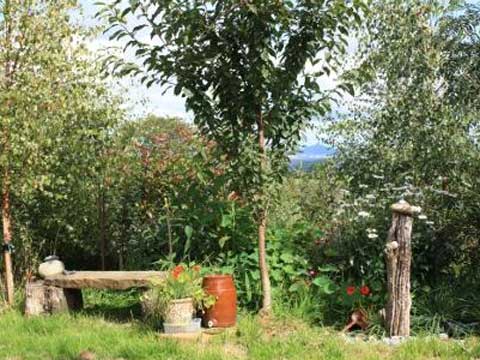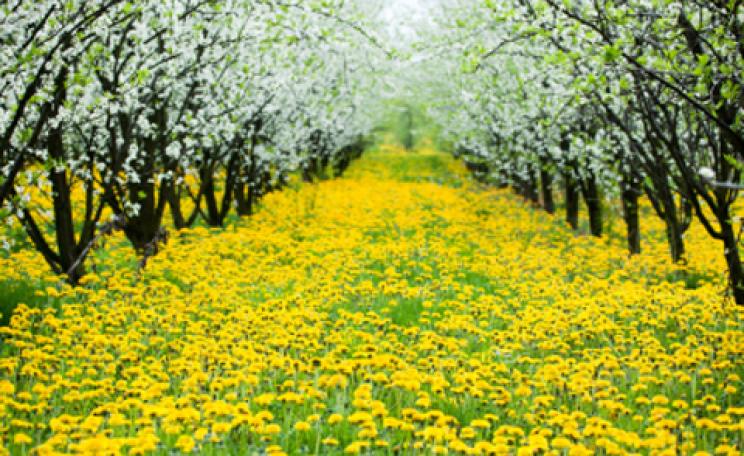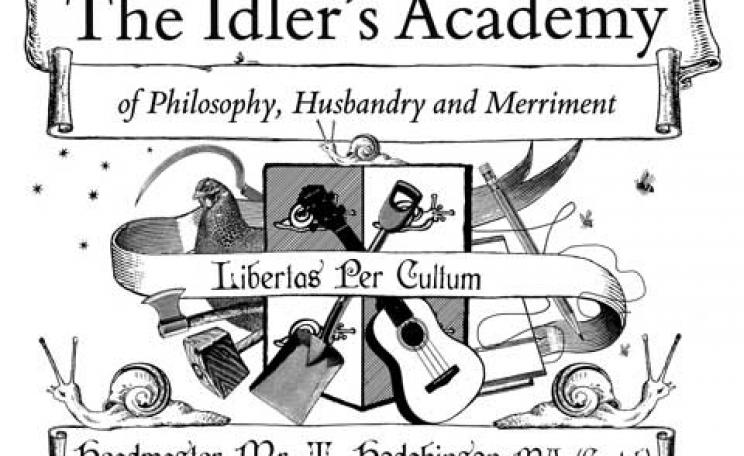As part of my research for a new book I have been reading Virgil. For those of you who have forgotten, Virgil was a Roman poet who lived from 70 BC to 19 BC. He is famous for three poems, the Eclogues, the Georgics and the Aeneid. In the Eclogues, Virgil praises the state of noble idleness. The most famous line from the poem is deus nobis haec otia fecit, meaning, ‘God has made this leisure for us’.
This phrase has been widely adopted as a sort of motto. It is, for example, the slogan for the city of Liverpool. It was used by Dr Johnson as the epigram to his first Idler essay of 1758. And Paul Lafargue, Karl Marx’s son-in-law, used the line in his essay ‘The Right to be Lazy’, in order to prove that ‘otia’ or leisure was approved by the ancients.
Sweet otia
It was ‘otia’ that I had in mind when I started to cultivate my own garden. I wanted to lie around in the groves and let nature take its course. I took as my gardening mentor Masanobu Fukuoka, pioneer of the attractively named ‘no-work farming’ principle and author of the cult book, The One Straw Revolution.
According to Fukuoka, man interferes too much with nature, and if we could only leave well alone, then she will be bountiful and provide. At around the same time, I heard about the idea of ‘no dig gardening’, and having spent many exhausting hours digging, double digging, manuring and all the rest of it, the notion that it is better not to dig, but rather simply to spread mulch on the surface of the soil, seemed very attractive.
And while I was about it, what was this bourgeois habit of sowing seeds in straight lines? In nature, plants grow and thrive in clumps. And why bother weeding? God does not weed, and yet beautiful flowers grow in hedgerows every year. Why bother even knowing what seeds you are sowing? One year, I simply chucked out a handful of random seeds that had collected at the bottom of the biscuit tin where I keep my seeds. And why not let the rocket and the nasturtiums self seed? Surely you didn’t need to buy seeds. As for slugs, why could I not share my crops? Perhaps slugs might even help me in the garden by munching up dead leaves and thus tidying up.
Idle fruits
The result of this idle gardening? A total mess. A hideous disaster. My garden became overgrown with weeds and I had no idea what was where. The lettuces were all eaten by slugs. The random patch sprouted two sunflowers only. The squash plants, which I had planted in an undug bed, grew for a few weeks, produced two tiny fruits, and then keeled over and died. The strawberries were eaten by slugs. My over-wintering brassicas stopped growing when they reached one foot tall.
I now realise that one key culprit was wind: in my lazy way, I had ignored the visiting gardeners who had advised me to put windbreaks up. I had also omitted to fence the garden properly, with the result that the pony walked in and ate everything, and destroyed the raised beds. The hens also made a mess of the garden, scratching up seeds. I think my peas went this way. The rocket went to seed. I started to dread entering the garden, and would procrastinate, which of course only made the problem worse.
Fruits of idleness
Idleness in the garden actually just created misery and more work, and an unpleasant sense of all the toil that lay ahead if I was to get things tidy again.
Which brings me back to Virgil. In particular the Georgics, his famous didactic farming poem. In this work, which offers a lot of practical advice, much of which is strikingly relevant today, Virgil has moved on from the Eclogues. Now he admits that hard work is needed in the garden: he writes labor omnia vincit, meaning ‘toil conquers everything’. You cannot let things slip in the garden, he says. Relax your vigilance, and all will be lost. He uses the analogy of rowing upstream: ‘If the boatman, who scarcely manages to force his boat up stream by rowing, should relax his arms by chance, the headlong current whirls him away down the river’.
Yes, says Virgil, toil conquers everything, toil, relentless toil, and unless you harry the weeds with unrelenting mattock, scare away birds and cut down overhanging branches, then you will be enviously peering at your neighbour’s grain stocks, and eating acorns.
This year I have followed Virgil’s advice and the result is a joy. I have a deeply dug garden whose soil is a pleasure to work. Eggshells surround each lettuce plant to deter slugs. I have set up windbreaks. It is neat and tidy and I look forward to working on it. It is already producing bumper crops; I’ve never seen such huge radishes. This is the paradox: laziness turns gardening into hard work, whereas hard work makes it easy.
Tom Hodgkinson is the author of How To Be Free and editor the Idler magazine
| READ MORE... | |
 |
COMMENT Toughen up: bee disease is nothing new There's no great conspiracy around bee deaths - hive diseases have been with us for millennia. No one who keeps livestock should expect an easy ride... |
 |
COMMENT No-one put Keats on a well-being course and a dose of Prozac An obsession with happiness science is just the chemistry set for a new opiate of the masses. Give me misery, says Tom Hodgkinson |
 |
GREEN LIVING Peat free compost: why to use and which to buy An avid gardener road-tests two brands of peat free compost, and gives you a recipe to make your own |
 |
GREEN LIVING A beginner's guide to permaculture gardening Don't get stumped by the name: permaculture is a simple, vital tool for food growers and gardeners alike |
 |
GREEN LIVING Kitchen gardening: an A to Z A is for allotments; B is for brocolli; C is for climate change... and U is for urine. 'The Alternative Kitchen Garden: an A-Z' is a companion for both inexperienced and expert gardeners |







